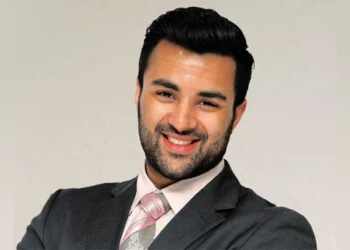Dr. Tedros Adhanom Ghebreyesus, born on March 3, 1965, in Asmara, then part of Ethiopia and now the capital of Eritrea, stands as a towering figure in global public health. As the first African to head the World Health Organization (WHO), Dr. Tedros has been instrumental in shaping international health policy and response mechanisms, particularly in times of global crisis.
Key Information
| Field | Details |
| Full Name | Tedros Adhanom Ghebreyesus |
| Date of Birth | March 3, 1965 |
| Place of Birth | Asmara, Eritrea (then part of Ethiopia) |
| Nationality | Ethiopian |
| Religion | Ethiopian Orthodox Christian |
| Languages Spoken | Tigrinya, Amharic, English |
| Family | Married with five children |
| Parents | Adhanom Ghebreyesus and Melashu Weldegabir |
| Education | – BSc in Biology – University of Asmara (1986)
– MSc in Immunology of Infectious Diseases – London School of Hygiene & Tropical Medicine (1992) – PhD in Community Health – University of Nottingham (2000) |
| PhD Thesis | The effects of dams on malaria transmission in Tigray Region, northern Ethiopia, and appropriate control measures |
| Political Affiliation | Tigray People’s Liberation Front (TPLF) |
| Current Position | Director-General, World Health Organization (since July 1, 2017) |
| Former Roles | – Minister of Health, Ethiopia (2005–2012)
– Minister of Foreign Affairs, Ethiopia (2012–2016) |
| Notable Honors | – Jimmy and Rosalynn Carter Humanitarian Award (2011)
– Honorary Fellow, London School of Hygiene & Tropical Medicine (2012) – Honorary Doctorates from Umeå University (2018), University of Nottingham (2019), Newcastle University (2019), University of Glasgow (2024), University of Groningen (2024), University of Nicosia (2024) – Time 100 Most Influential People (2020) – African of the Year Award, African Leadership Magazine (2020) – Ubuntu Humanitarian Award (2022) – Thomas Francis Jr. Medal in Global Public Health, University of Michigan (2023) |
Early Life and Education
Raised in a modest household, Tedros Adhanom Ghebreyesus early life was deeply influenced by the healthcare struggles he witnessed in his community. These personal experiences ignited his passion for public health. He pursued a Bachelor’s degree in Biology from the University of Asmara, followed by a Master of Science in Immunology of Infectious Diseases from the London School of Hygiene & Tropical Medicine. He later earned a Ph.D. in Community Health from the University of Nottingham, United Kingdom.
Transforming Ethiopia’s Health System
Before stepping onto the global stage, Dr. Tedros made a significant impact in his home country. As Ethiopia’s Minister of Health from 2005 to 2012, he led one of the most ambitious health reform programs in Africa. Under his leadership, Ethiopia built thousands of health posts, deployed over 30,000 community health workers, and expanded health insurance coverage. These efforts resulted in a dramatic decline in child and maternal mortality, improved access to HIV treatment, and better control of malaria and tuberculosis.
He later served as Minister of Foreign Affairs from 2012 to 2016, representing Ethiopia on major international platforms and reinforcing the connection between health, diplomacy, and development.
Leadership at the World Health Organization
Dr. Tedros was elected as the Director-General of the World Health Organization in 2017, becoming the first person from the African continent to lead the organization. His election marked a pivotal moment in WHO’s history, symbolizing a shift toward more inclusive global health leadership.
During his first term, he launched the WHO’s “Triple Billion” targets, aiming to provide 1 billion more people with universal health coverage, better protect another billion from health emergencies, and ensure another billion enjoy better health and well-being.
His leadership was tested during the COVID-19 pandemic, where he became a global face of the response. Despite facing political pressure and criticism, he consistently advocated for unity, science-based policies, and equitable access to vaccines. His calm demeanor and unwavering focus earned him both praise and scrutiny from global leaders and the public alike.
In 2022, Dr. Tedros was re-elected for a second term, reflecting continued confidence in his leadership amid evolving global health challenges.
Reforming the WHO
In April 2025, Dr. Tedros initiated a bold restructuring of WHO, reducing its senior leadership team from 12 to 7 and streamlining departments from 76 to 34. This move aimed to enhance efficiency, accountability, and responsiveness, especially vital in a rapidly changing global health environment.
Legacy and Global Impact
Dr. Tedros’s work has redefined global health diplomacy. He has tirelessly championed the rights of underserved populations, emphasized the role of health in achieving sustainable development, and pushed for greater equity in healthcare delivery worldwide.
Beyond titles and offices, Dr. Tedros represents a powerful narrative of resilience, transformation, and hope. From a young boy in Asmara to the helm of the world’s top health agency, his journey underscores the impact one determined individual can have on millions.
Interesting Facts About Dr. Tedros
- First African Director-General of WHO
He made history in 2017 by becoming the first African to be elected to the top role in the WHO. - Malaria Researcher Turned Global Leader
Early in his career, Dr. Tedros conducted field research on malaria and published widely in scientific journals. - Architect of Ethiopia’s Health Revolution
Under his tenure as Health Minister, Ethiopia trained over 30,000 community health workers and drastically reduced maternal and child mortality rates. - Fluent Diplomat
His transition from public health to diplomacy helped Ethiopia become a key player in African and global affairs. - Faced Global Scrutiny During COVID-19
During the pandemic, he walked a tightrope of diplomacy and public health leadership, often speaking out for global vaccine equity. - Advocate for Universal Health Coverage
Dr. Tedros is one of the strongest global advocates for “Health for All,” promoting equitable access to healthcare regardless of income or geography. - Introduced the WHO Reform in 2025
His structural overhaul of the WHO in 2025 reduced bureaucracy and was praised for improving transparency and decision-making speed. - Devoted Family Man
Despite his global responsibilities, he is known to be deeply family-oriented and often credits his family for grounding him.
Read more biographies and success stories of business leaders, celebrities, healthcare professionals etc. at Leader Biography.






